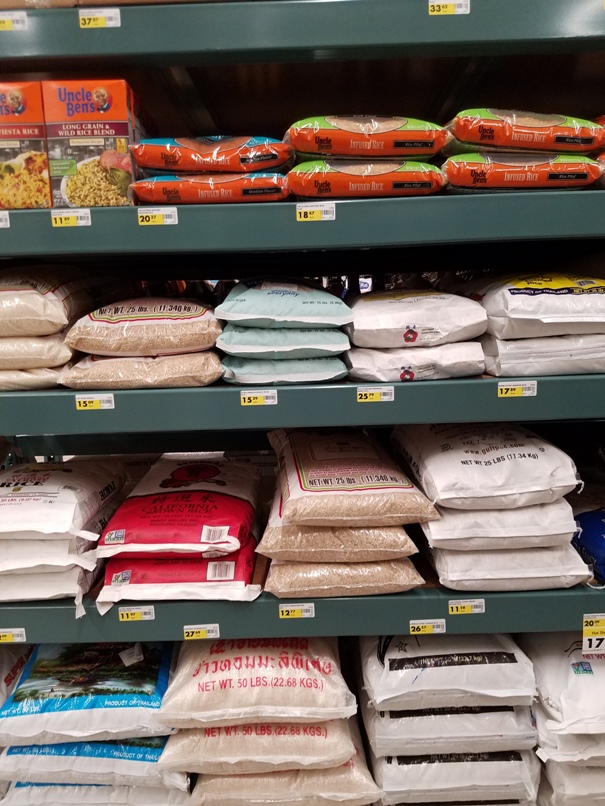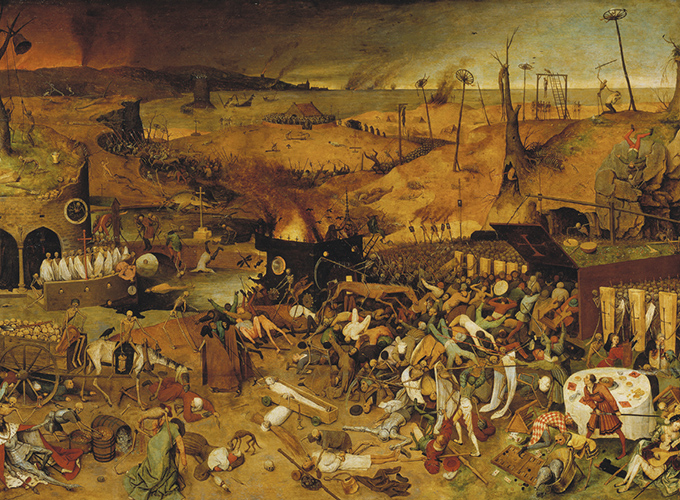In Hazlitt’s book, ‘Economics In One Lesson’, which I highly recommend to you, he says “…The art of economics consists in looking not merely at the immediate but at the longer effects of any act or policy; it consists in tracing the consequences of that policy not merely for one group but for all groups.”
You could replace economics with preparedness, and event for policy, and have yourself a handy little rubric for wargaming future preparations.
One thing that I’ve always found terribly irritating about many survivalists is the tunnel vision, or, perhaps more accurately, lack of situational awareness in regard to a particular disaster or event. This current situation of coronavirus is a perfect example of what I mean.
This Kung Flu checks off the ‘pandemic’ tickybox on our checklist of “things we prepare against”. Admittedly, it was right down there with ‘nuclear war’ and ‘comet strike’ in terms of probability on many people’s lists. After all, the last time something like this happened was around a hundred years ago…so it really wasn’t on too many peoples radar. We leaned more towards hurricanes, riots, economic collapses, and that sort of thing.
The thing is, while people may have planned for, or anticipated, a pandemic and made some plans to protect themselves, I would wager that a large percentage of them didn’t think through what else a pandemic brings that you need to prepare against.
An example: When Hurricane Sandy hit New York many people lost their vehicles because of the flooding. Most had insurance that covered the loss, so they sat back and figured they were set. Their inner dialogue went something like this:
“Flooding will occur. I’ll probably lose my car. Let me make sure my insurance will cover it. It does? Great, I’m all set.”
And virtually no one had this inner dialogue:
“Flooding will occur. I’ll probably lose my car. Let me make sure my insurance will cover it. It does? Great. But since I won’t have a car I’ll need to make arrangements for a rental. And fuel. And directions to other supermarkets if my main one is flooded out.” etc, etc.
And this is exactly what happened. People lost their cars but when their insurance said “hey, we’ll cover a rental car for you” those same people found that every rental car for fifty miles in every direction was already rented by people who thought ahead. See, they got so focused on the event (losing their car) that they didn’t think about the consequences of the event (no car rentals being available).
It seems a lot of people worry about the event and put little focus into the effects of the event. The Kung Flu is like that. Everyone stocked up on hand sanitizer and toilet paper, but how many made plans for when the kids school is closed, the paycheck is stalled because you’ve been told not to come into work, the guy who was gonna fix your car is out with the Kung Flu, your AirBNB rental income slumped as tourists stay home, your wife’s housecleaning ‘side gig’ drops to zero as people don’t want strangers in their house, etc, etc. And meanwhile, your mortgage, taxes, utilities, and credit card bills are all still due.
You drop a rock in a pond and ripples radiate out, right? That’s a fair metaphor, I think. The disaster occurs and we focus on that point where the rock hits the water and we don’t think about the ripples that emanate outwards. RIght now one of the biggest ripples is the amazing contortions the stock market is going through. I’d wager that no one, when planning a few years ago for Capt. Tripps, had the foresight to think “Y’know, when that superflu comes through and starts doing its thing, the markets are going to tank…I should probably be ready for that.”
There’s that old expression about not seeing the forest because all the trees are in the way. The forest is the larger, greater, overall chaos and disorder that results from a particular event. We tend to get so fixated on the individual events (trees) that we don’t see the entirety of what chaos theyve created (forest).
Hurricane Katrina, fifteen years ago, was a benchmark for disaster preparation. I have absolutely zero doubt that the Kung Flu of 2020 will be remembered as a black swan event that changed disaster planning for many organizations, governments, and individuals.
The lesson to be learned seems pretty straightforward – when you prepare for a particular event, you need to look at all the possible negative effects that event could cause and you have to be ready for them as well. You have to look as far ‘downstream’ from the disaster as possible and try to see what the consequences will be and how you can best prepare for them.
Did I get caught napping? Honestly, yes. I should have had more money sitting in my brokerage accounts to take advantage of stocks and funds being on sale at 25% off. That’s it. That’s all I’d change. I have enough cash in the bank, and no liabilities, to cover me for a few months if I’m unable to bring in income. No mortgage to sweat, no credit card payments to stress over, no car loan to dread, no student loan to fear. To some degree, I’m insulated from the fallout from coronavirus even if I’m not immune to the coronavirus itself.
So, assuming we all survive this, we should analyze the whole thing, start to finish, and see what lessons we learn from it.
 And here is what it looks like today:
And here is what it looks like today:

 Whats interesting is that there’s even a bit of a run on…canning supplies. I stopped by WalMart to snag a dozen half-pint for making relish and……:
Whats interesting is that there’s even a bit of a run on…canning supplies. I stopped by WalMart to snag a dozen half-pint for making relish and……: I already have hundreds of jars and lids, but I was curious to see how far the panic buying had gone. Answer: pretty far.
I already have hundreds of jars and lids, but I was curious to see how far the panic buying had gone. Answer: pretty far. Shelf-stable Parmalat whole and 2% milk bricks? Yeah…gone.
Shelf-stable Parmalat whole and 2% milk bricks? Yeah…gone.

